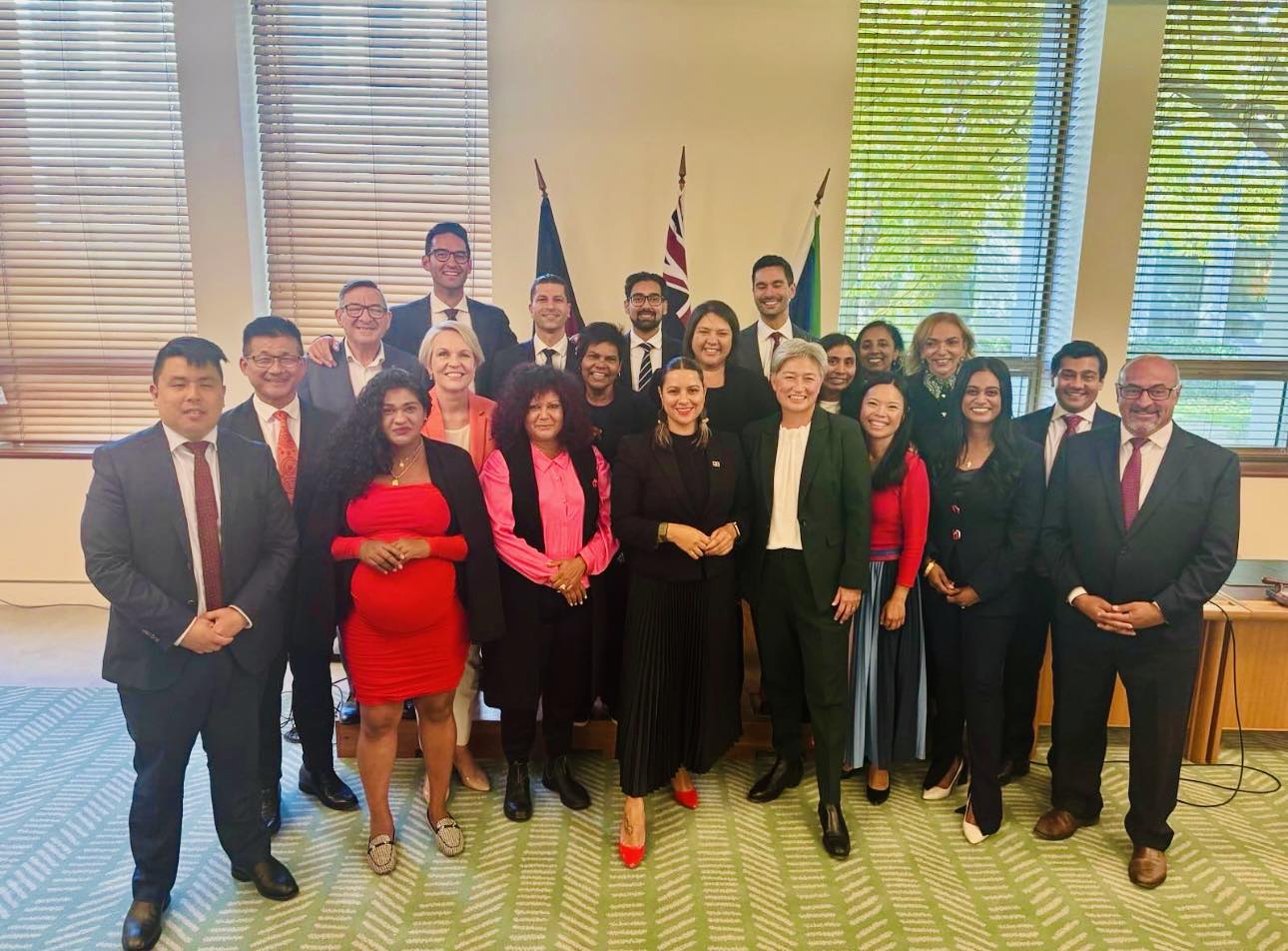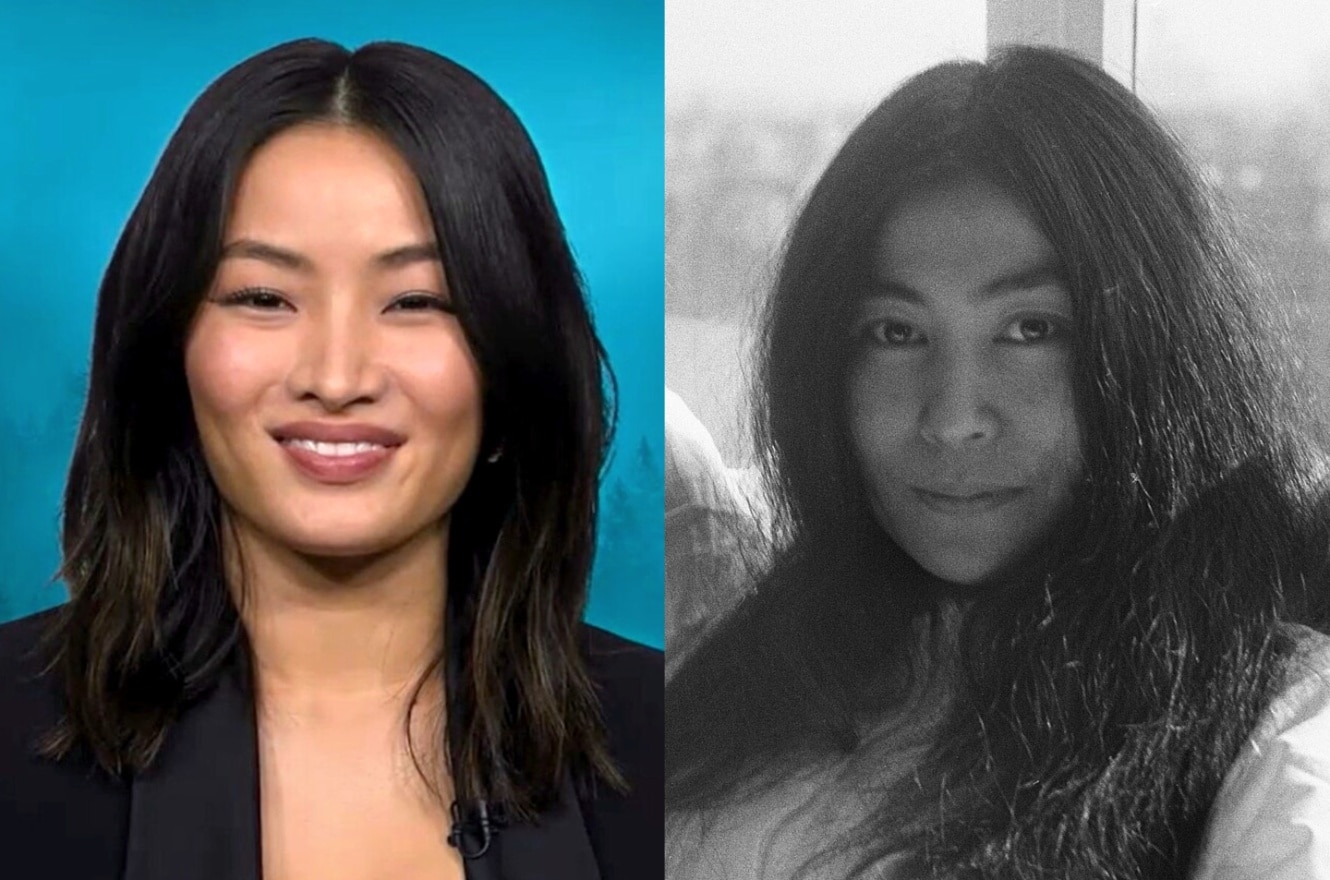Saturday May 3, 2025 marked the day Australians decided who would run the country for the next 3 years. It was quite a momentous election because it saw a resounding victory for one political party and a total annihilation of another. With issues such as the increased costs of living, increasing healthcare prices, housing affordability issues and the Donald Trump factor concerning Australian voters, trust went to the return of an Anthony Albanese Labor led-government.
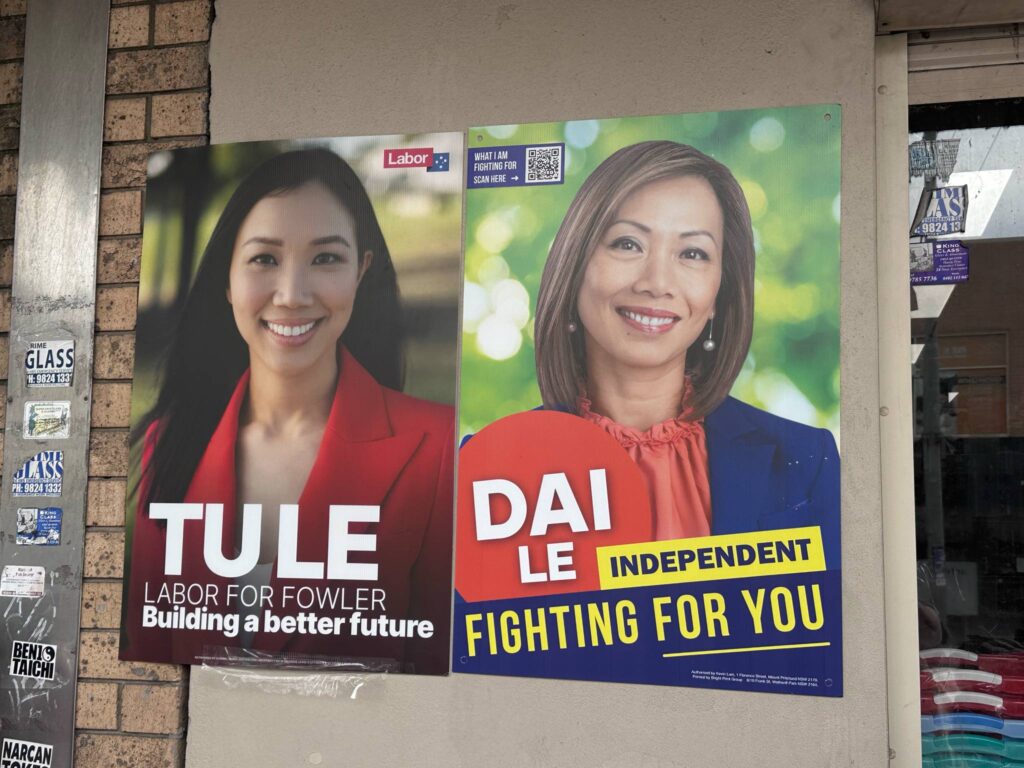
With this win, Australian Parliament also saw an injection of a number of new Members of Parliament (MPs) who come from both culturally and religiously diverse backgrounds, reflecting more of what the demographics of Australia actually looks like. This includes the re-election of a number of MPs of Asian heritage and a few new ones who are about to start their political journey.
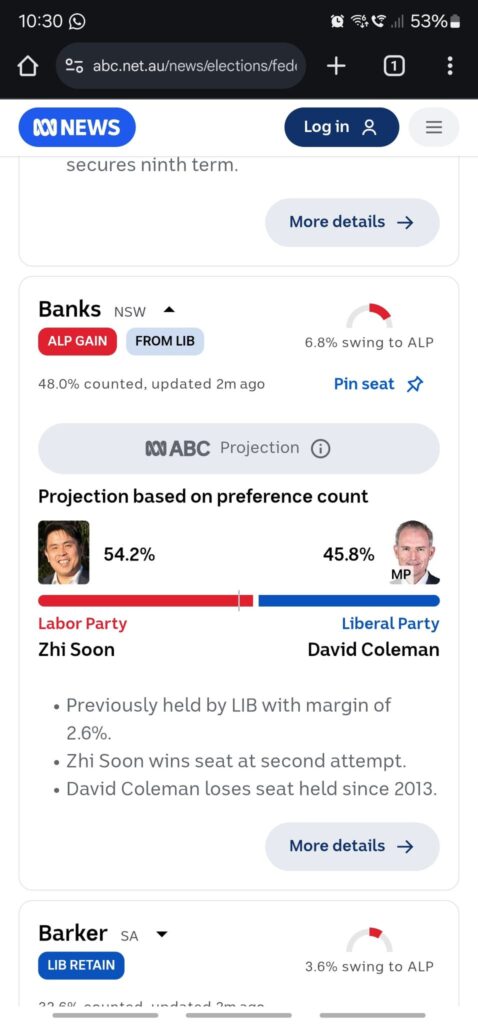
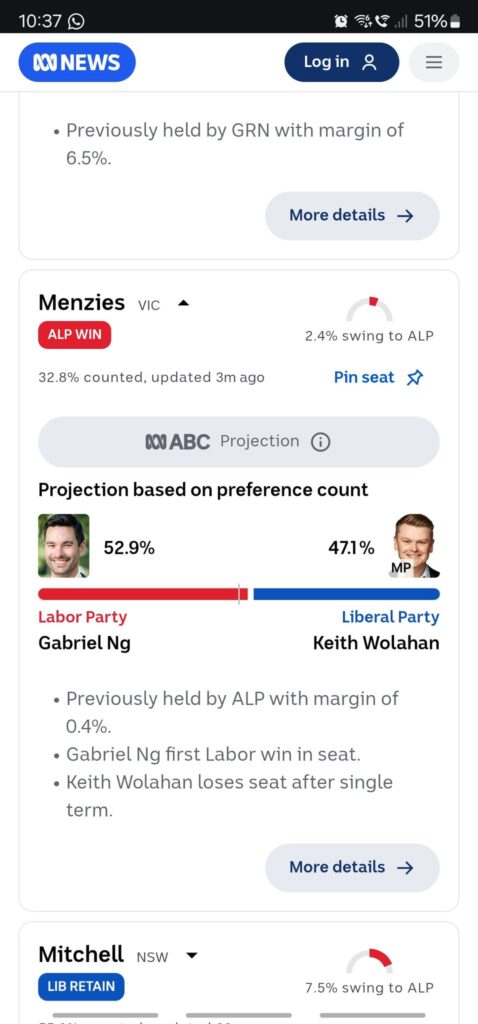
Prior to the 2022 Federal Election, the number of MPs and Senators of Asian heritage was extremely dismal. There was a total of five ( two in the Senate and three in the House of Representatives) and after the 2022 Federal Election where an Anthony Albanese Labor led-government was elected for its first term, there were six additional MPs and one Senator of Asian heritage elected to serve their first term. This more than doubled the numbers coming to eleven.
So now we come to the 2025 Federal Election. To this number from 2022, add an additional five MPs of Asian heritage who have just been elected to serve their first term, then the number comes to fifteen Senators and MPs who have Asian heritage ( one MP lost his seat at the election, and another will be moving up to the Senate as her seat was abolished by the Australian Electoral Commission).
Prior to Election Day interviews were conducted with three MPs – Sally Sitou, who has been re-elected for her second term, Zhi Soon, who has been elected for his first term and Gabriel Ng, who like Zhi was elected for his first term. At this momentous moment it is important to understand their backgrounds, motivations and how their Asian heritage/identity has helped shape how they campaign and communicate their messages to the voters.
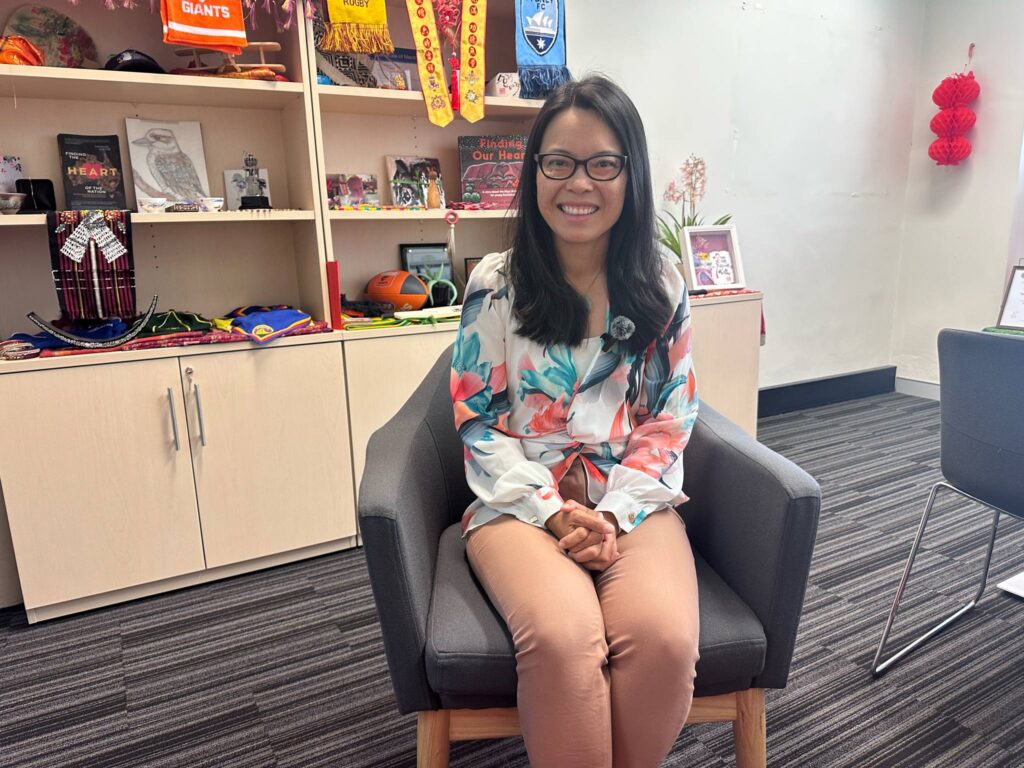
For Sally, it is her hardworking parents who inspired her to get into politics. Coming from humble beginnings from a Laotian Chinese family, her parents did factory work to bring up the family. At this time Sally was still in high school and was their interpreter as they didn’t speak a lot of English back then.
The pinnacle moment came for Sally when her father got injured at work and her mother got made redundant with her job and it was the trade unions and colleagues which helped the family through this difficult time.
“Both my parents didn’t have a lot of formal education and I remember the times when my dad got injured at work and my mum got made redundant from her job – as the factory manufacturing job she was doing was moving overseas. It was the union and colleagues which helped them through the process and became the support for the family”, Sally expressed.
“The idea of being a collective and fighting for worker rights really appealed to me. I looked into the Labor Party and realised their policies and principles aligned with what mine were. The Labor Party is one which supports communities, believes in the idea of giving everyone a ‘fair go’ and support multiculturalism and diversity – this is why I was so passionate about politics and why I am here today”.
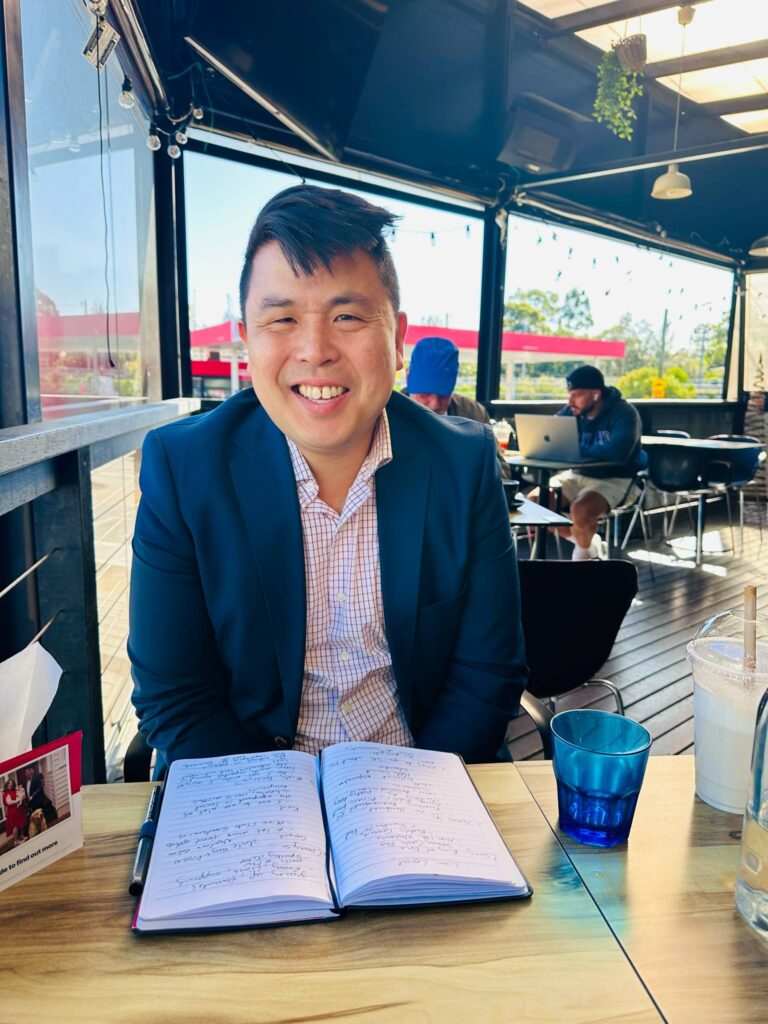
Hailing from Malaysia, Zhi migrated to Australia in the late 1980s with his family. Having settled in Sydney, Zhi understands the struggles migrants face in Australia- which are similar things his family faced when they first migrated to Australia. Having led a successful career which includes working as a diplomat in Afghanistan, working in public policy and working alongside ministers and other politicians, these experiences culminated into his love for politics and was a reason why he put his hand up to stand.
As a political candidate this election was his third time and as they say third time lucky and this time it worked as a charm for him.
“My career has mainly been in public policy with a large focus on public service. So that includes being an Australian diplomat and working on foreign policy issues, which means I was posted overseas in Afghanistan. This was a major experience for me as it showed the challenges that the world faces and also it demonstrated the importance of alliances and partnerships with other countries”, Zhi stated.
“Being born in Malaysia and being a young kid when we moved to Australia was a major challenge and this reflects a large portion of the electorate I am standing in – which is the seat of Banks. Being able to resonate with their own experiences has helped me become a better candidate”.
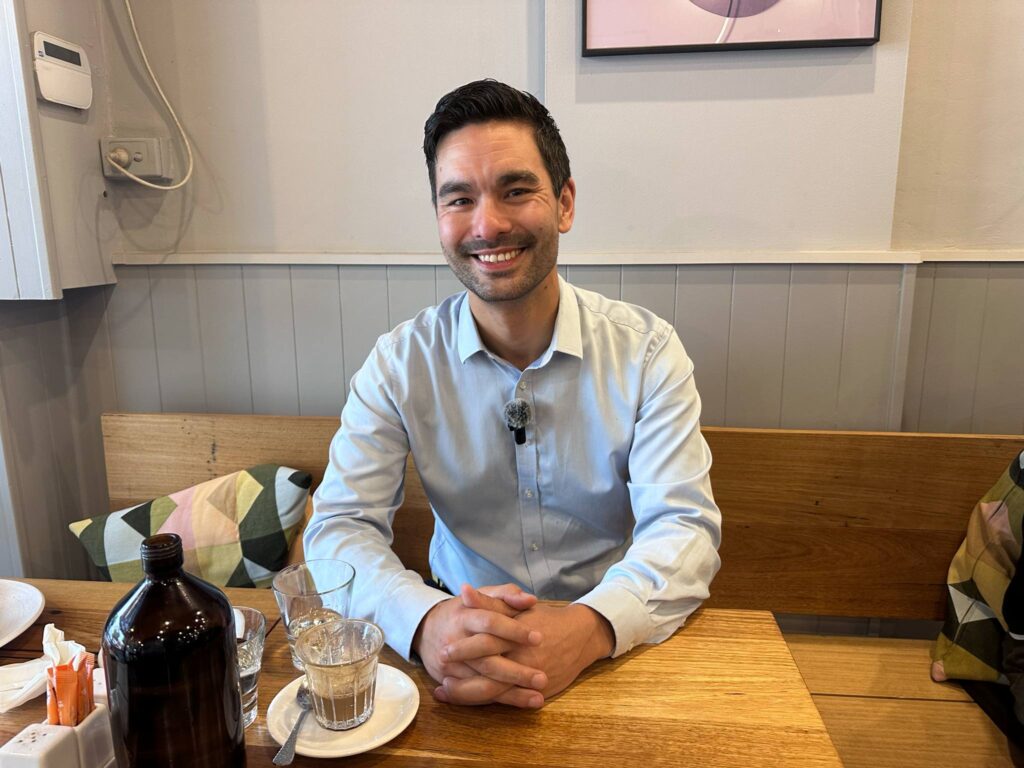
Singaporean Australian Gabriel Ng is the type of person who puts his principles and convictions into action. His love and passion for politics has stemmed from his personal values and principles that he grew up with. This is what has bought him to where he is today and that love for politics has never wavered. As someone who puts action to his words and convictions, Gabriel rose within the ranks of the Labor Party in Victoria- going from just a regular member to the secretary of his local branch and being active in state and federal campaigns.
“I feel I have always had a strong sense of social justice, strong opinions and convictions. I didn’t want to just be one of these people that sat around in a pub with friends yelling at the TV. So only three years ago did I join the Labor Party here in Melbourne, and rising within the ranks and being actively involved in election campaigns, did I realise how important elections and politics is in changing policy and society. It is working with communities, which I love and having had a career as a lawyer as well as being a union delegate, I know that I can be a strong voice for communities, so I hope I can be elected to be able to do so”, Gabriel passionately explained.
“I truly believe that in a society like ours, everyone should be taken care of despite social status and income levels. Of course we want to grow a more prosperous society but with that there needs to be an inclusive society- this is my ideal and what I will take with me whilst I campaign”.
What is most interesting is that the electorates Sally, Zhi and Gabriel now ( as the election results are confirmed) represent as MPs have high concentration of Chinese Australian voters. Similar to the last election in 2022, the Chinese vote determined the future of many key electorates, and this was the case again in 2025.
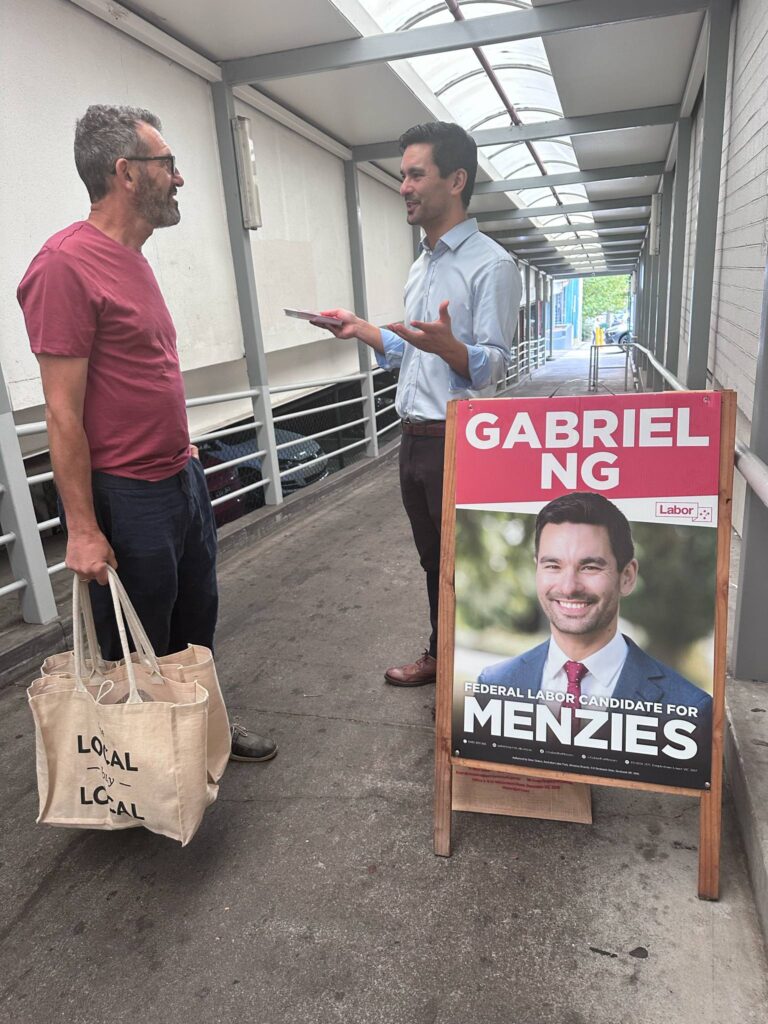

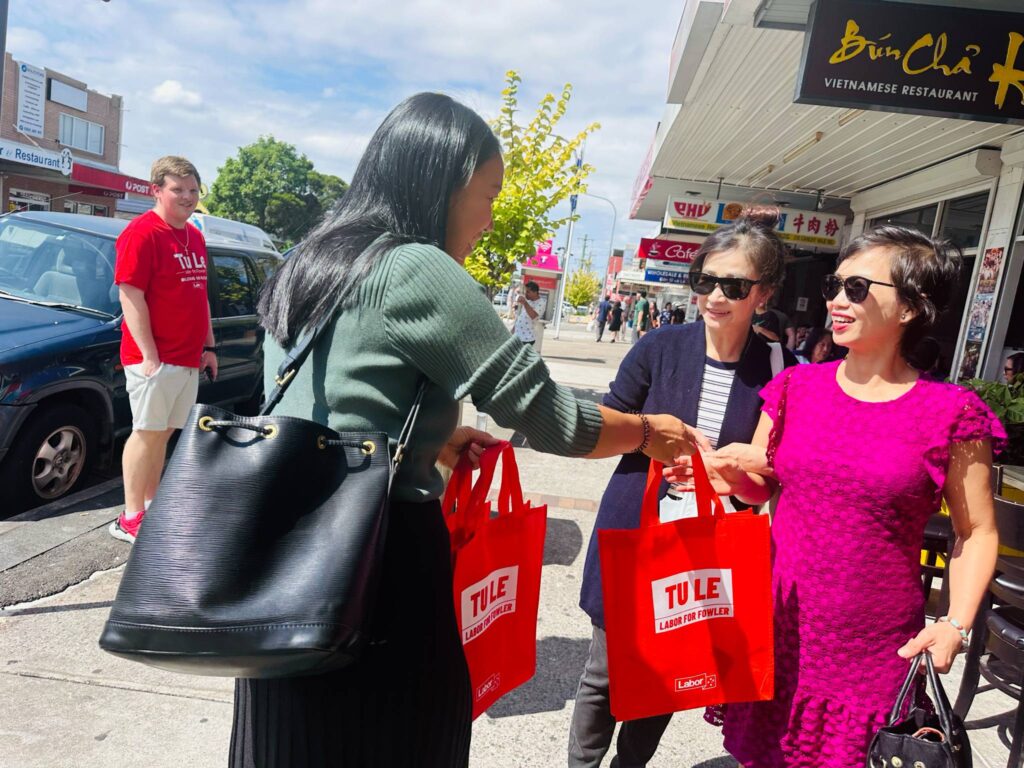
Campaign photos of Asian Australian candidates
Feelings of dejavu was felt as in 2022, the significance of the Chinese communities votes was spoken about constantly by political parties, community leaders, influencers and the mainstream media as a factor which determined how certain electorates would swing towards. And in 2025 this same conversation started again.
Considering the population of Chinese people in Australia makes up around 5.5% of the country’s population (according to the 2021 Australian Bureau of Statistic, ABS), it is important that political parties engage and win over the votes. A traditionally conservative community in Australia, Chinese Australian votes have now shifted away from the centre right Liberal Party and going to the Labor Party which is more moderately progressive.
The question which needs to be asked is why? And the answer is pretty simple with the Liberal Party over the past few years pandering a very racially divisive narrative about China and about Chinese people. The negative anti-China rhetoric coming out of the Liberal Party throughout the election campaign of 2022 ( where they lost to Labor), is repeated again in 2025. Being treated as the ‘other’ and not considering the community as part of Australia, the Liberals lost the community’s confidence and votes in surprising fashion.
No longer are the Chinese Australian community’s voting habits determined based on political ideals and this will be a constant test for all Australian political parties to adequately consult, engage and properly interact with the community and not just see them as ‘easy votes’.
This sentiment was reflected all across Australian media outlets post the 2025 Election, with articles such as The Guardian purely focusing on the Chinese Australian vote and how it swayed the election results;
“Suburbs with significant Chinese Australian populations in key marginal seats recorded huge swings to Labor of up to 30%, and strategists and analysts warn the Liberal party has failed to rebuild trust with the community”.
These huge swings were a factor which resulted in the resounding victories for Sally, Zhi and Gabriel. Adding to this, all three have Chinese heritage from a South East Asian background ( Sally being Laotian Chinese, Zhi being Malaysian Chinese and Gabriel being Singaporean Chinese from his father).
Talking to each of them about the constantly shifting Chinese Australian vote, all agree that their Chinese heritage and identity has helped them better understand the needs, nuances and expectations from the Chinese Australian communities in their respective electorates, and it gives them a better insight into how they can better engage, interact and support the community.
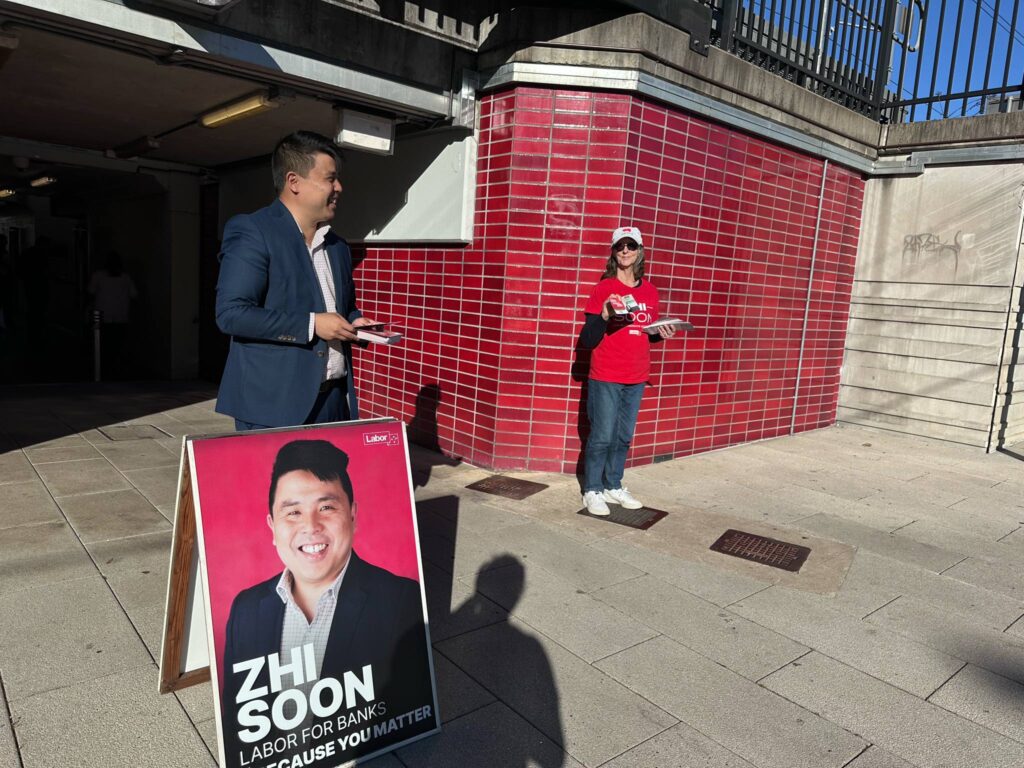
The electorate of Banks which is located in Sydney’s south, has approximately 20% of those who identify as having Chinese ancestry according to the ABS. This is significant and as Zhi indicated, his face, his cultural understanding and the policies the Labor Party stands for is what appeals to Chinese voters in his electorate.
“I think it is the broader immigrant story- you know the one where we come to Australia and create a nice, stable life for the family. It is this story that resonates with our Malaysian Chinese, Chinese and other Asian communities. We are communities who have settled, adapated and embraced Australia. We are not a community to be taken advantage of or dealt with as though we know nothing about politics”.
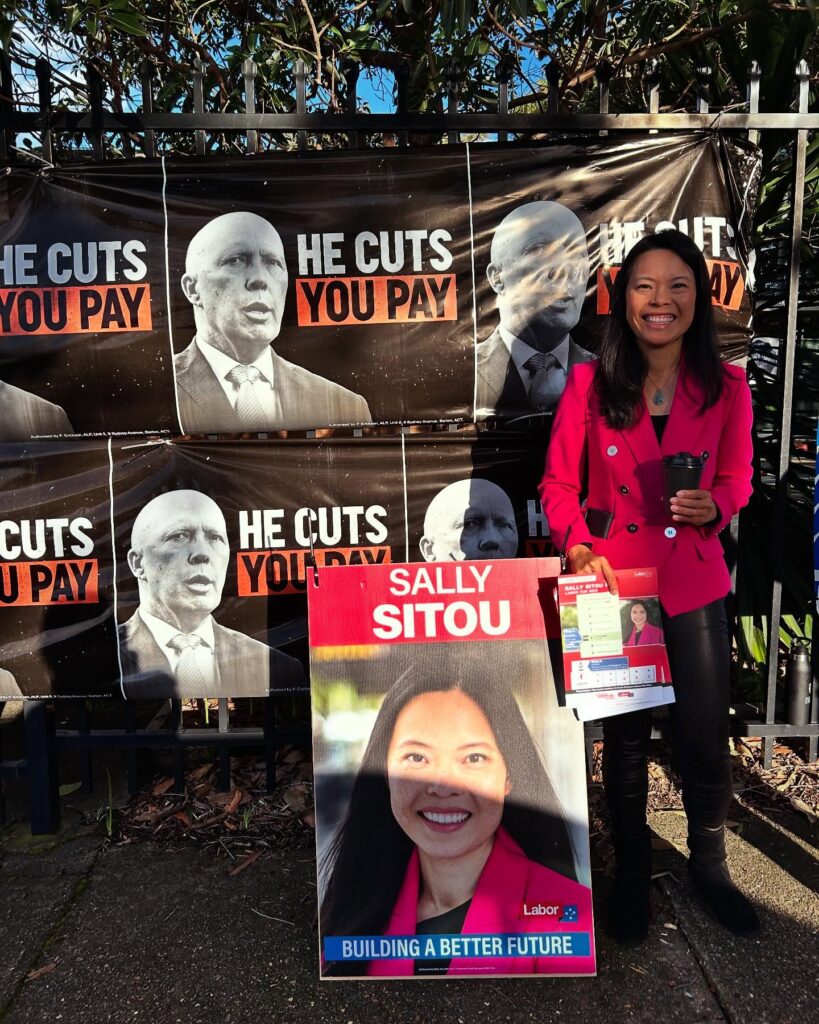
Sally echoes the sentiments expressed by Zhi and added that as someone who is proud of both her Chinese and Laotian background, she understands the challenges the community faces. Sally is now starting her second term as the member for Reid which spans parts of Western Sydney to suburbs getting closer towards Sydney’s city. According to the ABS, around 18% of Reid’s population has Chinese ancestry. Like Banks, the Chinese vote was extremely important for Sally.
“The great thing that comes from my cultural background is that whenever we hold events in the electorate, when I visit local businesses and attend events, I look at the community and think about my own parents – who would not have gone to talk to their local member. This is why I go to the community and listen, rather than talk – its what my parents would have appreciated”.
“I think it is more than just my face, but it is my ability and motivation to do all I can for the community. This includes ensuring there are translators at all my events, material and resources translated and written with nuance and just being out there letting them know that I am here to support them”, Sally discussed.

Going down south to Melbourne in the electorate of Menzies, Gabriel Ng has just won the honour of representing this electorate. Located in the north-western suburbs of Melbourne, the ABS indicates that around 27% of the population have Chinese ancestry. Again a very important voting bloc. For Gabriel his father being Singaporean Chinese has taught him to have strong principles and values about hard work and what success means. Gabriel has taken these lessons from his father and adapted it to himself as a candidate which helps him better understand the needs of the community.
“You know, I don’t think we should have diversity for just the sake of diversity. As someone who comes from a diverse background, I want to make it count. My electorate of Menzies is an aspirational electorate, and with the high Chinese population of voters, it is important that I listen to them, so if elected I can take their concerns to Parliament. Things such as house ownership is high in my electorate so issues such as healthcare, education and the economy are issues of concern to the electorate. For Chinese Australians it is all that and add on issues around how China is perceived globally – the good and the bad.”
Despite the massive win for Labor all across the country, there is the concern that the Labor Party will get lazy and fall into the same mistakes made by the Liberal Party – and that is to take the Chinese Australian community for granted. Constant engagement, inclusion and consultation needs to occur in the next three years and into the future, if the newly re-elected Labor government wants to keep the votes and for the Liberals who are in opposition want to win back the votes.
Just as a final note, in terms of numbers for the Asian Australian make up of Parliament, in addition to Sally, Zhi and Gabriel there are an additional seven who have either been elected for their first term or re-elected to serve a second term. Out of this total of ten, five have some sort of Chinese background, making them 50% of the Asian Australian House of Representatives make up.
In the Australian Senate, there are six Senators who have an Asian Australian background, with Australia’s Foreign Minister Penny Wong having a Malaysian Chinese background.
Header image credit: Senator Penny Wong Facebook page

